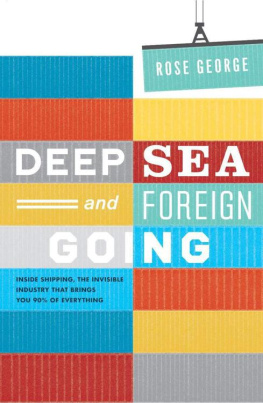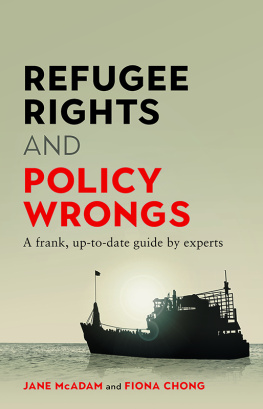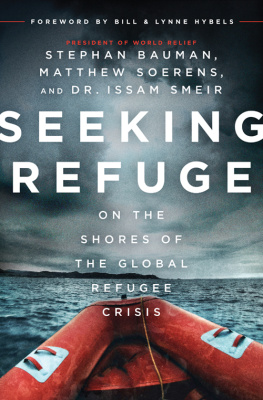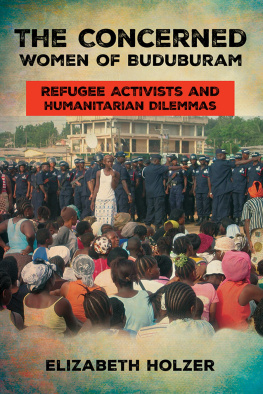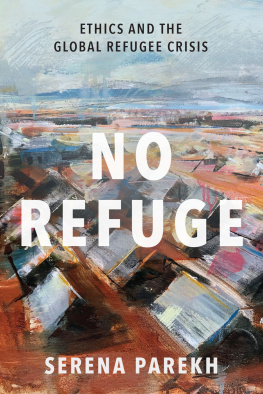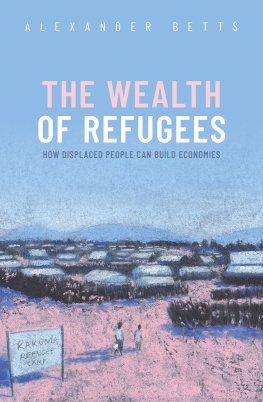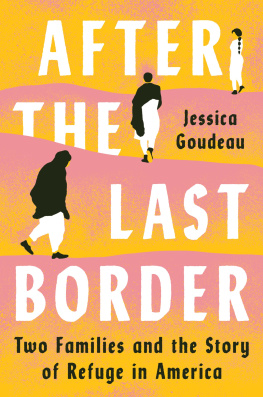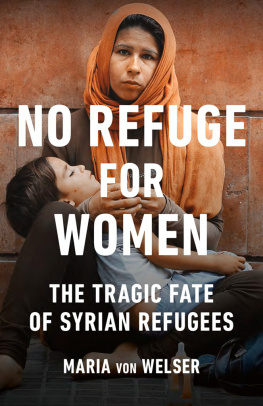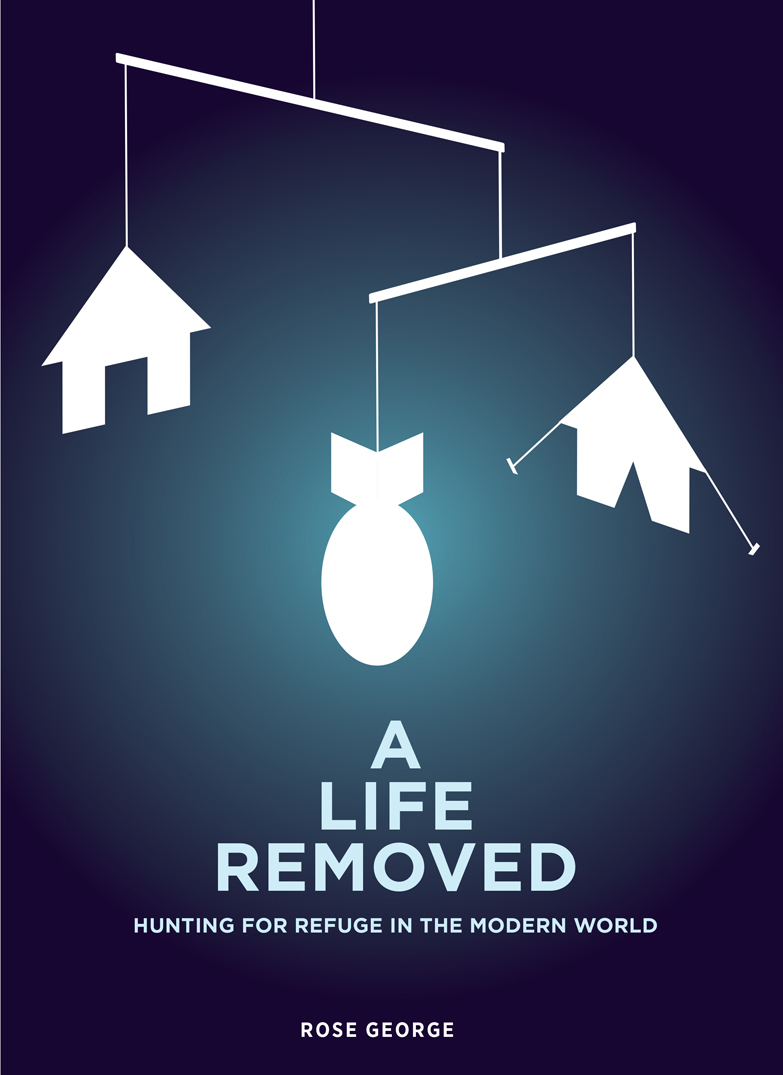Copyright Rose George 2014
All rights reserved, including the right of reproduction in whole or part in any form. For information, address : William Morris Endeavor Entertainment 11 Madison Ave New York, NY 10010
ebook ISBN: 978-0-7867-5642-1
Distributed by Argo Navis Author Services
Table of Contents
Guide
CONTENTS
Today, Charles Taylor has liberated the Liberian people. At least, over 20,000 of them have been liberated to the great beyond.
Nigerian newspaper This Day, on Charles Taylors arrival in Nigeria, August 2003
A young man in Cricklewood is watching on TV a country that he used to belong to. Rich is watching it from 3175 miles and 13 years distance, because hes from Liberia, which used to be known for its exports of timber and rubber, but whose biggest export now is refugees. 750,000 Liberians are still on the run from their country, or a quarter of the population. Translated into a nearer and clear hypothesis, thats equivalent to 12 million British people, or more than London. Emptied.
The camera pans over Monrovia, Liberias once-gracious capital on the Atlantic Ocean. I see buildings and waves. The young man sees memories. Man, he says, in his half-London, half-Liberian accent. Theres nothing left!
***
Conversations with Liberians can be confusing. For anyone unschooled in the countrys recent history, a discussion would probably go like this:
When did you leave your home? When the war met me.
Which one?
Who raped your mother?
The rebels.
Which ones?
When did you leave Liberia?
Which time?
How was your child killed?
Which one?
It is hard to keep up with the succession of men, women and guns who have destroyed a country. Heres a short list: PRC, LPC, NPFL, INPFL, ULIMO-J, ULIMO-K, LURD, MODEL. Here are some names: Samuel, Charles, Prince, Roosevelt, George. Innocuous names, for lethal men. I ask refugees why these men made war. I dont know! they said. Just to destroy. Liberia used to be a good place to be. It worked, more or less. Before 1989, Liberians tell me, there was no such thing as a Liberian refugee. People would go abroad to study and almost always come home. With a US$ economy, stability and Atlantic surf, why wouldnt they?
On a bridge in Monrovia, some weeks earlier, a boy was selling sweets. They were laid out, in red wrappers, along the narrow top of a waist-high barrier. One by one, in a long and dainty line. He was selling them singly, because one sweet can be a luxury in a country only months away from battles so bad, Liberians refer to them them World Wars 1, 2 and 3, with no irony. The red sweets look like shards of glass. They are beautiful, against the damaged stone of the bridge, and behind them there are bullet-holes.
Between June and July 2003, the time of the world wars, this bridge was the stage for prancing boy and girl soldiers, in filthy clothes and crazy wigs, with heavy guns and drugged eyes, who delighted news cameramen and terrified everyone else. They were from both sides of the battle LURD rebels (Liberians United for the Reconciliation of Democracy) on one side, militia loyal to president Charles Taylor on the other. They gave themselves fine cartoon names, like Jungle Fire, or University of Bullet. They were all undisciplined and dangerous, both the government soldiers launching mortars from the Monrovia side of the bridge, to the young rebels receiving them on Bush rod island, which they now occupied. They had got far enough into the city to write No Monkey! graffiti on the walls. The monkey is Charles Taylor, now ex-President of Liberia, so-called because the versions vary he was up in the tree and wouldnt come down, or because he was up in the tree, and he kept taking the best fruit.
Taylors militia fighters were firing mortars from a tall building overlooking the bridge, and their Small Boy Unit colleagues were down on the ground, shooting indiscriminately because thats what they did best, and thats what theyd been doing for most of the previous 14 years, if theyd been alive that long. Occasionally, either for clearly thought-out political advantage, or because they felt like it, the fighters in the tall building would lob a rocket or two into Mamba Point, the chi-chi quarter overlooking the ocean where the Americans had built an embassy complex that was once the largest in sub-Saharan Africa and which even today is the size of a small, highly-sandbagged village. There were Liberians sheltering in the embassy compound, because they had heard there was an electronic device installed there that could deflect missiles, when the rockets fell and sliced up 20 people. Later, there were Liberians lying on the ground in front of the US Embassy Gate Number 1, because the citys residents had got too disgusted with the Americans refusal to intervene, and piled up bodies killed by mortars in the Greystone IDP camp the day before - as an incontrovertible message. In case the Americans still didnt get it, the bodies were accompanied by a handwritten note saying, America! What else do you want to SEE?
The Americans didnt get it in the way the Liberians would have wished. They refused to send an American peacekeeping force, like the one the British sent to next door Sierra Leone, or the French sent to Cote dIvoire, though an American assessment team strongly recommended intervention. But the US put its strength, several years too late, behind the promise of 15,000 peacekeepers, just not American ones (as usual, developing countries were to supply the majority of blue helmets). It helped get rid of Charles Taylor, who was persuaded to step down, and now lives in comfortable exile in Calabar, Nigeria, with a large entourage and a large phone bill. A month or so after the bodies at the gate, Liberians had a kind of peace. The fragile kind. The last time they had any peace more durable than that was in 1979.
***
I remember the television coverage from last summer, the garish boy fighters, the undertones of excitement of reporters getting to see somewhere comprehensively and newsworthily destroyed. I paid some attention, I felt some pity. But I still thought Monrovia was a country, and Freetown was its capital. Liberians in the UK say most people think theyre from Libya. They know Sierra Leone, because it was a British colony. But not us. If they were in the merchant navy, theyll know us from the Liberian flags of convenience. (Liberia has the second largest shipping fleet in the world.) When Graham Greene travelled through Liberia in 1936, he called his book Journey without Maps, because there werent any of Liberia. When I looked for a map in Londons best map shop, things had progressed. There was exactly one available. In German.
It is a small country smaller than England - but even before it provided the spectacle of war, there were reasons Liberia should have stood out. On a corner in Monrovia, just before the presidential drive which leads past the Executive Mansion and which Charles Taylor forbade any citizen from driving down, there are three battered posters. The one with the biggest dimensions and biggest dents is the one to remember. Two cartoon figures face each other, a small man in shorts, a tall man in a stars-and-stripes hat. Behind them, there is a winding road, with way stages of Liberias history marked out. The small figure Liberia has a grievance. We have come a long way, big brother, his speech bubble says. But its still rough. We are still suffering. Uncle Sam looks puzzled, perhaps because hes now speaking Liberian. For true?
In reality, most Americans would have no time for the small figure, because they wouldnt know he existed. But they should. Liberians call themselves Americas little brother, or Americas stepchild. They think theyre the 51st state. Their towns are called Harper and counties are called Maryland, and there are enough children called George and Jefferson to make Republicans and Democrats proud. Monrovia is named after US President James Monroe. The Lone Star flag is a single-issue version of the Stars and Stripes: the single star represents the lone independent state in Africa in 1847, when Liberia was founded, and the eleven stripes are the eleven men who signed the Declaration of Independence. The countrys motto the love of liberty brought us here - would look fine on an American license plate. There were even stories, when the economy was good, of wealthier Liberians who lived in the US and commuted to Monrovia. We dont think of ourselves as an African nation, says someone. We are an American nation in Africa. African-American-Africans.


